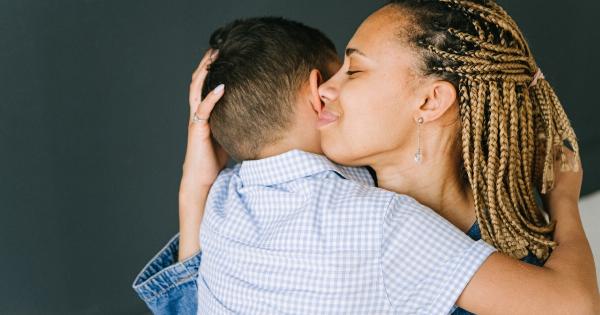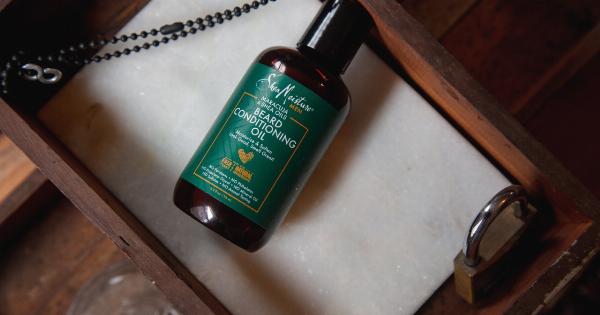Having healthy and beautiful hair is something that many people strive for. However, there are quite a few mistakes people make when it comes to their hair care routine that can lead to damage and poor health.
Here are 30 hair care mistakes to avoid for healthier locks:.
1. Over-Washing Your Hair
Washing your hair too frequently can strip your hair of its natural oils, leading to dryness and brittleness. It’s best to wash your hair every two to three days.
2. Not Washing Your Hair Enough
On the other hand, not washing your hair enough can lead to oil buildup and scalp issues. Aim to wash your hair at least once a week.
3. Using Hot Water to Wash Your Hair
Hot water can dry out your hair and strip it of its natural oils. It’s best to use lukewarm water to wash your hair.
4. Rubbing Your Hair with a Towel
When you vigorously rub your hair with a towel, the friction can lead to breakage. Instead, gently squeeze the excess water out of your hair with a towel.
5. Skipping Heat Protectant
Heat styling tools can damage your hair if you don’t use a heat protectant. Make sure to apply a heat protectant spray or cream before using any hot tools on your hair.
6. Using Too Much Heat on Your Hair
Excess heat can lead to brittle and damaged hair. Try to limit your use of hot tools and use them on the lowest heat setting possible.
7. Brushing Wet Hair
Wet hair is more fragile and prone to breakage. It’s best to wait until your hair is dry or use a wide-tooth comb to gently detangle wet hair.
8. Using the Wrong Brush
Using the wrong type of brush on your hair can lead to breakage and damage. Make sure to use a brush that’s designed for your hair type and texture.
9. Using Harsh Hair Products
Hair products that contain harsh chemicals can damage your hair over time. Look for hair products that are free of sulfates, parabens, and other harmful chemicals.
10. Not Conditioning Your Hair
Conditioner is essential for keeping your hair moisturized and healthy. Make sure to use a hydrating conditioner after shampooing.
11. Using Too Much Hairspray
Using too much hairspray can lead to crunchy and stiff hair. Use hairspray sparingly and opt for a lighter hold formula.
12. Using the Same Hair Products for Years
Over time, your hair can adapt to a certain hair product and stop responding to it. Mix up your hair products every few months to keep your hair healthy.
13. Not Protecting Your Hair From the Sun
The sun’s UV rays can damage your hair and fade your hair color. Make sure to use a hair product with SPF or wear a hat when spending time in the sun.
14. Going to Bed with Wet Hair
Going to bed with wet hair can lead to breakage and damage. Make sure your hair is completely dry before heading to bed.
15. Using Too Many Styling Products
Using too many styling products can weigh down your hair and lead to product buildup. Use only the hair products you need and avoid layering too many products.
16. Over-Drying Your Hair with a Blow Dryer
Excess heat from a blow dryer can cause dryness and damage. Let your hair air dry as much as possible and use a blow dryer on the lowest heat setting.
17. Not Trimming Your Hair Regularly
Regular trims can help prevent split ends and keep your hair looking healthy. Aim to get a trim every six to eight weeks.
18. Using Too Much Shampoo
Using too much shampoo can strip your hair of its natural oils and lead to dryness. Only use the amount of shampoo you need to properly cleanse your hair.
19. Not Rinsing Shampoo and Conditioner Out Properly
Leaving shampoo or conditioner in your hair can lead to product buildup and cause damage. Make sure to rinse your hair thoroughly after shampooing and conditioning.
20. Ignoring Your Scalp
Your scalp needs care too. Make sure to exfoliate your scalp regularly to remove any buildup and stimulate hair growth.
21. Using Tight Hair Ties
Tight hair ties can cause hair breakage and damage to the hair follicle. Use hair ties that are gentle on your hair and avoid pulling your hair too tightly.
22. Using Dirty Hair Tools
Dirty hair tools can lead to product buildup and bacteria growth. Make sure to wash your hair tools, including brushes and combs, regularly.
23. Using Chemical Treatments Too Often
Chemical treatments, such as hair coloring and perming, can damage your hair if used too often. Give your hair a break in between treatments and make sure to use a deep conditioning treatment afterward.
24. Neglecting Your Diet
Your hair health is also influenced by your diet. Make sure to eat a balanced diet that includes plenty of fruits, vegetables, lean protein, and healthy fats.
25. Using Hair Products with Alcohol
Hair products that contain alcohol can dry out your hair and lead to breakage. Look for hair products that are alcohol-free.
26. Not Protecting Your Hair When Swimming
Chlorine and saltwater can damage your hair. Wear a swim cap or apply a leave-in conditioner before swimming to protect your hair.
27. Using the Wrong Hair Color
Choosing the wrong hair color can lead to damage and dissatisfaction with your hair. Consult with a professional before making a drastic change to your hair color.
28. Over-Brushing Your Hair
Over-brushing your hair can lead to breakage and damage. Brush your hair only when necessary and avoid excessive brushing.
29. Over-Using Dry Shampoo
Dry shampoo can be a lifesaver, but overusing it can lead to buildup and clogged pores on your scalp. Use dry shampoo sparingly and make sure to thoroughly brush it out of your hair.
30. Not Protecting Your Hair While Sleeping
Friction from your pillowcase can cause hair breakage and damage. Sleep on a silk or satin pillowcase to protect your hair while you sleep.






























